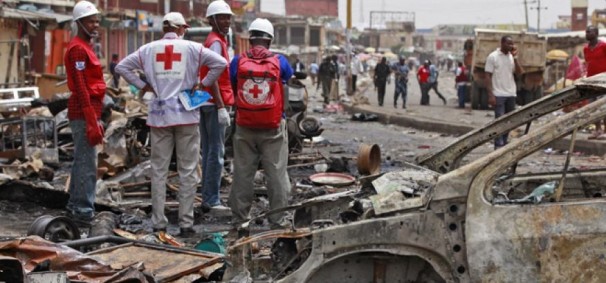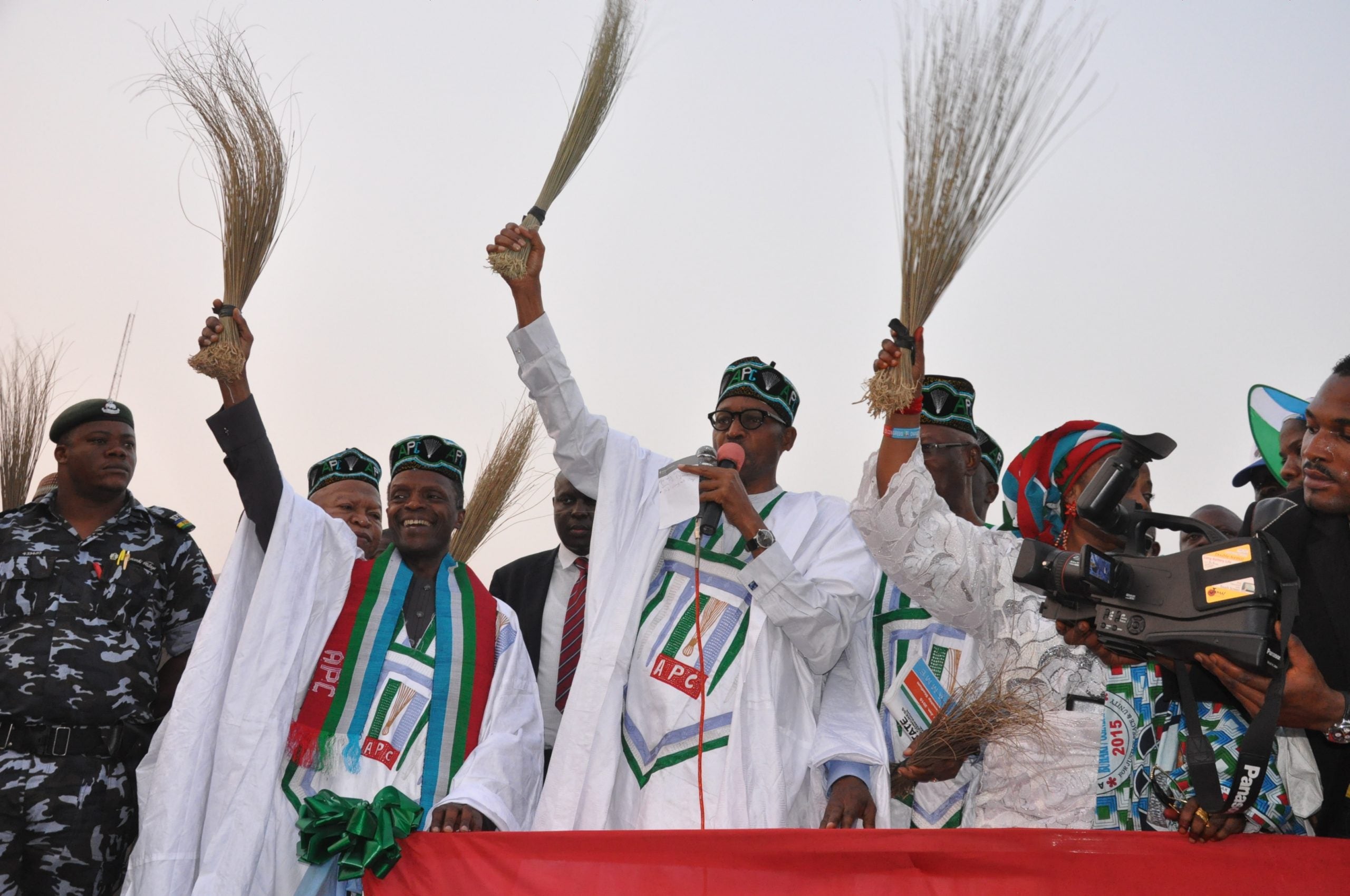Navigating Nigeria: An Introduction to Contemporary Challenges (Corruption & Political Instability)
Nigeria is a nation emblematic of resilience and potential, grapples with a myriad of challenges as it strides towards its aspirations of prosperity and stability. Situated in West Africa, this vibrant country with a rich cultural tapestry faces a complex web of issues that shape its socio-economic and political landscape. From entrenched corruption to ethnic tensions, from economic inequality to security threats, the common issues confronting Nigeria today are as diverse as they are daunting.
Unveiling Nigeria's Veil of Corruption and it's Impact on Society
 An insidious force that has entrenched itself within the fabric of Nigerian society, stands as one of the most pervasive and damaging challenges facing the nation. From the highest echelons of government to the grassroots level, its tendrils reach deep, corroding institutions, stifling development, and eroding public trust. In this exploration, we unravel the complexities of corruption in Nigeria and examine its far-reaching impacts on society.
An insidious force that has entrenched itself within the fabric of Nigerian society, stands as one of the most pervasive and damaging challenges facing the nation. From the highest echelons of government to the grassroots level, its tendrils reach deep, corroding institutions, stifling development, and eroding public trust. In this exploration, we unravel the complexities of corruption in Nigeria and examine its far-reaching impacts on society.
At its core, corruption manifests in various forms, including bribery, embezzlement, nepotism, and patronage networks. These practices permeate every facet of Nigerian life, distorting the allocation of resources, undermining the rule of law, and perpetuating social inequalities. The scale of corruption is staggering, with estimates suggesting that billions of dollars are lost annually to graft and illicit financial flows.
One of the most visible consequences of corruption is the erosion of public trust in government institutions. When officials prioritize personal gain over the public good, citizens lose faith in the integrity of their leaders and the effectiveness of governance. This erosion of trust undermines social cohesion, fosters cynicism, and diminishes the legitimacy of the state, ultimately weakening the social contract between the government and the governed. Moreover, corruption exacerbates economic inequality, perpetuating a vicious cycle of poverty and underdevelopment. Scarce resources that could be invested in infrastructure, healthcare, and education are siphoned off through kickbacks and embezzlement, depriving ordinary Nigerians of essential services and opportunities for advancement. The unequal distribution of wealth further entrenches social disparities, widening the gap between the affluent elite and the marginalized masses.
Moreover, corruption exacerbates economic inequality, perpetuating a vicious cycle of poverty and underdevelopment. Scarce resources that could be invested in infrastructure, healthcare, and education are siphoned off through kickbacks and embezzlement, depriving ordinary Nigerians of essential services and opportunities for advancement. The unequal distribution of wealth further entrenches social disparities, widening the gap between the affluent elite and the marginalized masses.
In addition to its economic toll, corruption exacts a heavy human cost on Nigerian society. The diversion of funds meant for essential services, such as healthcare and education, leads to preventable suffering and loss of life. Inadequate healthcare infrastructure, compromised by embezzlement and bribery, leaves millions of Nigerians vulnerable to diseases that could otherwise be treated or prevented. Similarly, the siphoning of funds from the education sector deprives generations of young Nigerians of quality schooling, perpetuating cycles of poverty and illiteracy. Corruption also undermines the rule of law, fostering a culture of impunity where the powerful act with impunity while the vulnerable are left without recourse. Judicial processes are subverted through bribery and political interference, resulting in miscarriages of justice and the erosion of fundamental rights. This lack of accountability breeds resentment and frustration among ordinary Nigerians, who see the law as a tool of the privileged rather than a safeguard of justice.
Corruption also undermines the rule of law, fostering a culture of impunity where the powerful act with impunity while the vulnerable are left without recourse. Judicial processes are subverted through bribery and political interference, resulting in miscarriages of justice and the erosion of fundamental rights. This lack of accountability breeds resentment and frustration among ordinary Nigerians, who see the law as a tool of the privileged rather than a safeguard of justice.
Furthermore, corruption fuels social unrest and undermines security, providing fertile ground for criminal networks and extremist groups to thrive. In regions where state institutions are weak and governance is compromised, such as the Niger Delta and the northeast, corruption exacerbates grievances and exacerbates conflict. The Boko Haram insurgency, fueled in part by economic marginalization and corruption, stands as a stark example of how corruption undermines national security and stability. Despite the pervasive nature of corruption, efforts to combat it have been hampered by a lack of political will, weak institutions, and a culture of impunity. While anti-corruption agencies have been established and legislative frameworks enacted, enforcement remains inconsistent, and high-profile cases often fizzle out without meaningful consequences. The lack of transparency and accountability in public procurement processes further exacerbates the problem, providing opportunities for graft and embezzlement to flourish unchecked.
Despite the pervasive nature of corruption, efforts to combat it have been hampered by a lack of political will, weak institutions, and a culture of impunity. While anti-corruption agencies have been established and legislative frameworks enacted, enforcement remains inconsistent, and high-profile cases often fizzle out without meaningful consequences. The lack of transparency and accountability in public procurement processes further exacerbates the problem, providing opportunities for graft and embezzlement to flourish unchecked.
In conclusion, corruption in Nigeria is not merely a bureaucratic nuisance or a moral failing; it is a systemic issue that threatens the very fabric of society. Its corrosive effects permeate every aspect of Nigerian life, undermining trust in government, perpetuating poverty and inequality, and fueling social unrest. Addressing corruption requires concerted efforts at all levels of society, including robust legal frameworks, effective enforcement mechanisms, and a commitment to transparency and accountability. Only through collective action can Nigeria overcome the scourge of corruption and realize its full potential as a prosperous and inclusive nation.
Political Instability
Political instability in Nigeria has been a significant challenge for the country, with its roots tracing back to its colonial history, ethnic diversity, and post-independence struggles. This instability has had far-reaching effects on various aspects of Nigerian society, including its economy. Nigeria gained independence from British colonial rule in 1960, but its journey towards political stability has been marred by a series of military coups, dictatorships, and civilian administrations often characterized by corruption and ethnic rivalries. This tumultuous political history has left deep scars on the country's governance structures and institutions.
Nigeria gained independence from British colonial rule in 1960, but its journey towards political stability has been marred by a series of military coups, dictatorships, and civilian administrations often characterized by corruption and ethnic rivalries. This tumultuous political history has left deep scars on the country's governance structures and institutions.
Nigeria is a multi-ethnic and multi-religious society, with over 250 ethnic groups and a roughly equal division between Christians and Muslims. This diversity has often led to political tensions and conflicts, as different groups vie for power and resources, leading to a fragile political landscape.
Corruption has been endemic in Nigerian politics, permeating all levels of government and hindering development efforts. The mismanagement of public funds, embezzlement, and lack of transparency in governance have eroded trust in the government and deterred investment.
Nigeria has grappled with various security challenges, including terrorism, insurgency, and communal violence. The activities of groups like Boko Haram in the northeast, militant groups in the Niger Delta, and clashes between farmers and herders have destabilized regions, displaced communities, and disrupted economic activities.
Nigeria's economy is heavily reliant on oil revenues, which account for a significant portion of government revenue and exports. However, this dependence on oil has made the economy vulnerable to fluctuations in global oil prices, leading to economic instability and fiscal challenges during periods of oil price volatility.
Political instability, corruption, and security concerns have created a challenging business environment in Nigeria, deterring both domestic and foreign investment. The lack of consistent policies, weak rule of law, and regulatory hurdles have hindered economic growth and diversification efforts.
The inability of the Nigerian economy to create sufficient employment opportunities has exacerbated social tensions and contributed to political instability. High levels of unemployment and poverty, particularly among the youth population, have fueled social unrest and political dissatisfaction.
Political instability has also hampered infrastructure development in Nigeria. The lack of reliable power supply, inadequate transportation networks, and poor access to basic services have impeded economic productivity and competitiveness.
The political instability and economic challenges in Nigeria have driven many skilled professionals to seek opportunities abroad, leading to a brain drain that further undermines the country's development prospects.
Despite the recognition of the need for reforms to address the root causes of political instability and economic challenges, progress has been slow due to entrenched interests, bureaucratic inertia, and partisan politics. The lack of political will and consensus on key reforms has perpetuated the cycle of instability and underdevelopment.
In conclusion, political instability in Nigeria has had profound implications for its economy, contributing to low investor confidence, sluggish growth, and socio-economic disparities. Addressing these challenges requires concerted efforts to strengthen governance, promote inclusive development, and foster national unity and cohesion.
References
Chuta, S. C. (2004). Corruption in Nigeria. Nigeria: Afro-Orbis Publications.
Iroanusi, S. (2006). Corruption : the Nigerian Example. Nigeria: Sam Iroanusi Publications.
Ejiogu, E. (2016). The Roots of Political Instability in Nigeria: Political Evolution and Development in the Niger Basin. United Kingdom: Taylor & Francis.
Bouchat, C. J. (2013). The Causes of Instability in Nigeria and Implications for the United States. United States: Strategic Studies Institute and U.S. Army War College Press.










































